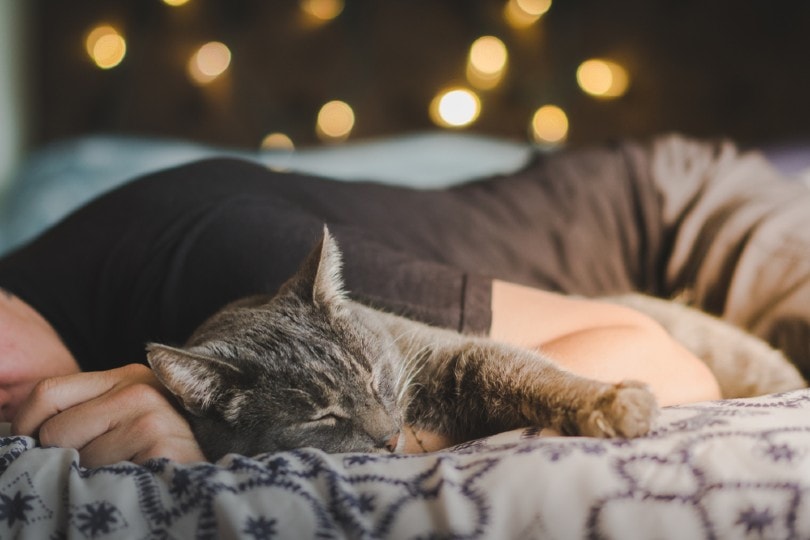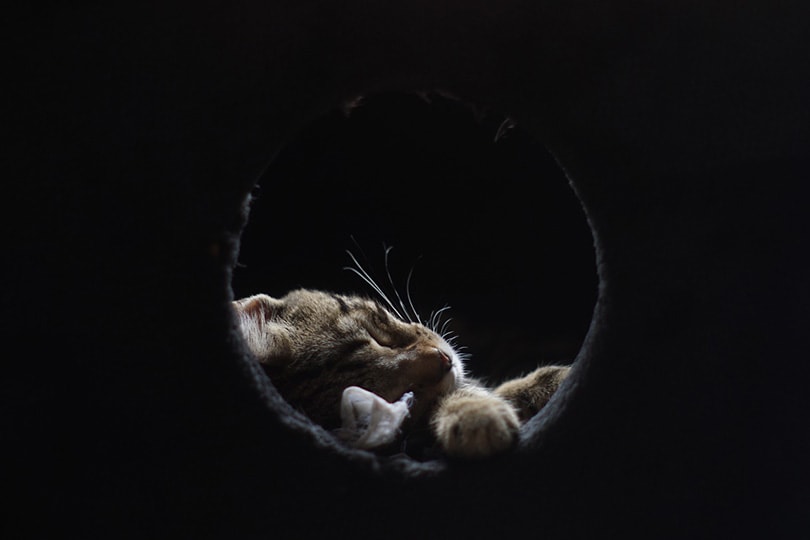
Although we often describe them as nocturnal, cats are actually crepuscular, which means that they prefer dusk and twilight rather than complete darkness. They can see very well in low-lit conditions, and they can see well enough in near-total darkness to get around without bumping into walls or tripping over everything.
While your cat may not need to hunt for animals at twilight, they will naturally come alive at these hours, which is typically when the rest of the house is settling down for the night or is already fast asleep. That’s why cats have a reputation for charging around the homestead and waking everybody up.
Crepuscular Behavior
Cats are crepuscular rather than nocturnal. This means that they are at their most active at dusk and twilight. During these hours, the lighting is naturally very dim but not completely dark. Most animals are still adjusting to the change in lighting, or they are just waking up or getting ready to go to sleep.
This means that, in the wild, cats would be able to safely escape predators while having the greatest chance of being able to catch prey. While your cat’s only predator might be the vacuum and their only prey is the dry kibble in their bowl, they retain many of the instincts that helped them survive as wild animals. They are essentially hardwired to be able to see better in low-light conditions.

Cats and Pitch-Black Conditions
Despite misconceptions to the contrary, cats cannot see when it is pitch black. They have a curved cornea and a large lens. This combination means that they can dilate their pupils to be able to absorb more light and see better in dim conditions.
They can use almost any amount of light to be able to see their surroundings, but there does have to be some light present for their incredible eyes to work. Therefore, cats cannot see in pitch black, although it may seem like it because the reflection of a car light or the glint of a standby light is enough to let them maneuver around objects.
Hiding in the Dark
As well as their propensity to charge around when the rest of the house is asleep, one of the reasons that cats have a reputation for preferring pitch-black conditions is because they hide in dark and out-of-the-way places.
Most owners have been scared by a cat emerging from inside a pile of laundry or leaping out of a dark cardboard box. Your cat isn’t hiding in those places because they like the dark. Instead, they are enjoying the security and the privacy that these spaces have to offer. Cats may not enjoy the dark, as such, but they might enjoy the fact that others dislike the dark.

Sleeping in the Dark
Cats are excellent sleepers. It is one of the things they truly excel at. Generally, cats like to sleep anywhere and at almost any time, regardless of whether it’s dark or light. As long as they feel safe, a cat can fall asleep in almost any conditions. This means that they will fall asleep in a well-lit room, a dimly-lit room, or a room in near darkness.
How to Ensure a Peaceful Night’s Sleep With Your Cat
It is true that cats come alive at night, especially when people are asleep. If you find that your cat is ruining your perfect slumber, there are some steps you can take to help remediate the problem.

Final Thoughts
Cats are fascinating animals that naturally sleep a lot. They also have exceptional eyesight under certain conditions. While they have a reputation for being able to see in the dark, they cannot see in total darkness. They can, however, see in very low-lit conditions, and they instinctively come alive at dusk and twilight when lights are low.
- See also: Glow-in-the-Dark Cats
Featured Image Credit: mariavp, Pixabay







